Monday, June 21, 2010
Legend of Zero
Forget Flintoff and company. My favourite England cricketer of all time is Joseph Emile Patrick McMaster. Indeed, I am haunted by him.
McMaster played one Test Match for England, although he did not know it at the time. It was the second match between Major Warton’s touring party and the South Africans, played at Newlands, Cape Town, on 25-26 March 1889, and was given Test status retrospectively.
England won the toss and batted first. McMaster came in at Number 9, with the score at 287 for 7, when Bobby Abel of Surrey was bowled by “Gobo” Ashley for 120. No doubt McMaster had to wait for the applause for the Surrey professional’s century, the first ever scored in South Africa. He took guard against the left-arm medium Ashley – and was out first ball, caught by Rose-Innes. He took the long walk back, perhaps murmuring an apology to the next batsman, Hon C J Coventry, now facing a hat-trick ball.
The golden duck was the zenith of his career. He fielded out two South African innings in which they were routed for 47 and 43 by Lancashire’s slow left-arm genius Johnny Briggs. He was not required to bowl his leg-breaks. He took no catch, as Briggs hit the stumps 14 times in a match analysis of 15-28.
McMaster’s appearance represented his entire first-class career, giving him a record which is impossible to beat. One ball faced, no runs, no wickets, no catches. He is a cricketing Yarborough, a total, statistical nullity. But who was this hero? How did he come to be playing for England? And what happened to him afterwards?
By courtesy of Peter Wynne-Thomas, secretary of the Association of Cricket Statisticians and Historians, I learn that “J E P” was born in Gilford, County Down, on 16 March 1861, which made him 28 when he began his England career. He went to Harrow and Trinity College, Cambridge, where he won a blue at the new-fangled sport of lawn tennis in 1881. He qualified as a barrister in 1888, just before his England tour. He died in Bloomsbury, London on 7 June 1929, by coincidence in the midst of a South African tour of England.
Truly a man of mystery. Why did he play no cricket for Cambridge University, or for any other first-class side? Did lawn tennis and the law take up too much of his time? Why then – with his legal career only just started – could he afford to gad about with Major Warton? And why was he selected? Was he a “good tourist”? Did he keep the dressing room in stitches with his witty impersonations of Mr Gladstone? I would so like to know. There is a picture of him in the Warton party, sitting on the ground. It shows a lean, pleasant-looking man, but no different from many other late Victorians. It gives no hint of the inner steel which propelled him into the Test team during that tough pioneering tour.
J E P won his cap from the young England skipper Monty Bowden, himself deputizing for the injured C A “Round-the-Corner” Smith (later the character actor Sir C Aubrey Smith and founder-captain of the Hollywood Cricket Club). Was J E P disappointed to go in Number 9, three places below the wicket-keeper H Wood? Or was he playing as a specialist leg-breaker? Did he get nervous in the pavilion, watching Abel’s long innings against the persistent Gobo Ashley on a difficult pitch?
At last it is his turn. Ashley bounds in, four wickets already to his name, and on his way to seven. J E P makes the fatal contact.
How did it happen? I know not,[1] except that he was not caught at the wicket. Did he perish gloriously on the long-on boundary? Or, as I would have done, did he grope forward uncertainly and get snapped up by the lurking Rose-Innes at silly point? Was there an umpiring controversy? Did J E P indeed make contact, or was it a clean catch? Was J E P “triggered” out of his innings by either of the English umpires, J A E Hickson or Major Warton himself?
For whatever reason, the dismissal brought down the curtain on J E P’s first-class career. But why did he never get another chance? Did he show dissent? At least he was not denied the retrospective glory of an England cap, and at least he knew about it, unlike poor Monty Bowden. He died of fever in Umtali only a few years later, buried in an improvised coffin made of whisky cartons which had to be guarded from marauding lions. (The genius Johnny Briggs died even more tragically in a mental asylum, but Hon C J Coventry survived a premature report of his death and was able to join his own funeral celebrations in his home village).
I like to imagine J E P in later life, toiling at the Bar, bored out of his mind in Chancery. He replays his fatal stroke over and over and turns it into a spanking boundary, the springboard of a career in cricket’s Golden Age. Each year he buys Wisden cricketers’ almanac, to view his entry in the Test players list.
I think of him playing club or village cricket, with the permanent aura of a Test player, a cherished wicket for opposition bowlers. Deliriously happy schoolboys would tell their mothers “I got McMaster out, the England player!” By contrast opposing batsmen would pat back his slow half-volleys and long-hops, for “You don’t take chances with McMaster, the England player.”
I hope too that there were McMaster children and grandchildren, to listen spellbound to his adventures on Major Warton’s tour, and when very good allowed to handle his England cap.
And on that sad day in June 1929 I hope that the touring South Africans paused to remember one of their earliest foes: J E P McMaster, the hero of zero.

(L to R) Stephen Frears, Andy Harries, Sir Ronald Harwood, and Peter Oborne having lunch at The Groucho Club in August 2011 to discuss the proposed feature film about Basil D'Oliveira. Photo by Paul Yule.
Tarry, Tarry Night
A fascinating debate amongst some members has emerged about the digestive effects of Guinness. It is an important discussion, given the increasing old age and Guinness consumption of many members, especially on Tour. It began when one All Star belatedly complained about the captioning of a picture of a tray of Guinness as "7 pints of spastic colon" on the grounds that it is "offensive to disabled people" and "generally unpleasant and disgusting". The blogmaster disputed the complaint, arguing that far from being an offensive term, Spastic Colon is one of the accepted medical terms for Irritable Bowel Syndrome and generally refers to erratic bowel movements – “such as one is pretty well certain to suffer after drinking large quantities of Guinness”. This assertion was based on his own experience and anecdotal evidence, particularly on the Irish Tour. He also argued, perhaps rashly, that this is understood by Guinness drinkers all over the world. Another member, asked for support by the complainant, could not comply and instead wrote: "I can confirm (both from experience and consulting with my surgeon uncle) that [blogmaster] is correct regarding the relationship between irritable bowel sydrome, a spastic colon and 7 pints of the black stuff. Hence the fact that I only drink lager on tour." The complaint appears to have been based on the irrational and fundamentally ignorant fear that other forces might use the term "spastic colon" against the mildly famous complainant.
Internet research demonstrates that "spastic colon" is a perfectly acceptable phrase, but what of the "Guinness effect"? How widespread is it? A fascinating blog site called "IBS Tales. Personal experiences of irritable bowel syndrome" (http://www.ibstales.com/men_and_diarrhea_3.htm) gives a clue, albeit implicitly: "I started a new job in the September of that year meaning I could move back to an area we knew. Things did seem to get a bit better (slowly) and I was not in as much pain. Slowly but surely I started to go to the pub with my team at lunch time, I even dared myself to try a Guinness! Heaven for 15 minutes, hell for three days! But by the November I was OK again, almost back to my pre-IBS days."
On the other hand, the equally captivating fartygirl.blogspot.com (http://fartygirl.blogspot.com/2011/04/ive-been-bad-bad-gluten-free-vegan.html) contains the testimony: “The thought of living a life without Guinness killed me. Then I read somewhere that some touchy stomachs can handle Guinness. This is because Guinness is wheat free, made from barley. I drank Guinness and I continue to drink Guinness. It gives me NO problems.”
(Incidentally, if you are doing your own internet research do not be diverted by a website called www.doodlekisses.com as that is about a dog called Guinness which happens to suffer from IBS.)
One member of the Irritable Bowel Syndrome Self Help and Support Group(http://www.ibsgroup.org/forums/topic/74144-alcohol-and-ibs/page__p__121147__hl__guinness__fromsearch__1#entry121147) says: “Guinness can give the most regular drinkers problems the next day also.” And in the website MedHelp (http://www.medhelp.org/posts/Gastroenterology/Re-black-and-tarry-stools--guinness/show/440172), under the heading “Black and tarry stools” a contributor writes: “I have found that drinking guinness causes me to have these foul things. Is this a universal effect of guinness or a possible indicator of something wrong with my insides?” There was no satisfactory response.
Members may also find limited further general insight into the subject on the Poopreport website (http://www.poopreport.com/Doctor/Knowledgebase/beer_and_poop.html). The man who had to shave his buttocks tells a particularly enchanting tale.
All Stars should email the blogmaster with their own experiences (whitecityallstar@aol.com). Their identities will be kept strictly confidential, if that is their wish. This topic could run and run.
Tarry, Tarry Night - addendum

Suitably arty pic of the Tate's dep director Alex Beard - 2011 tour

Athlone again, naturally - 2011 tour

Zoltan the Driver - 2011 tour
Nigel Whittaker 1948 - 2011

Nigel batting at a Victor Blank charity cricket day
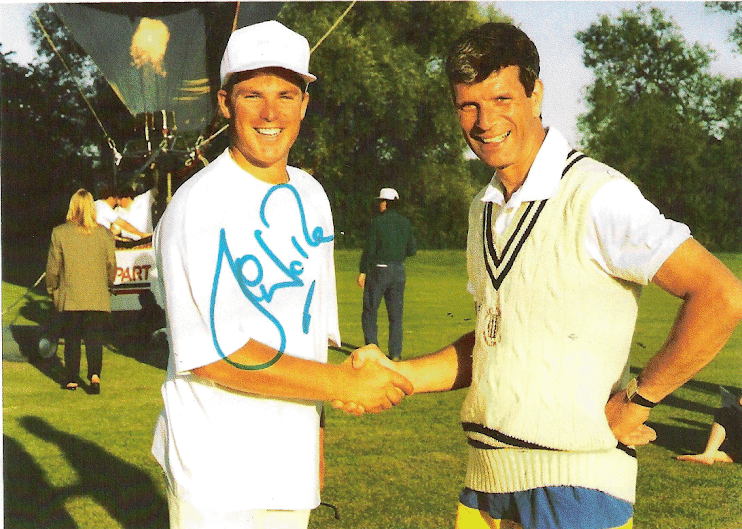
Nigel Whittaker meeting Shane Warne, a cricketing idol
The Ruddock Cup
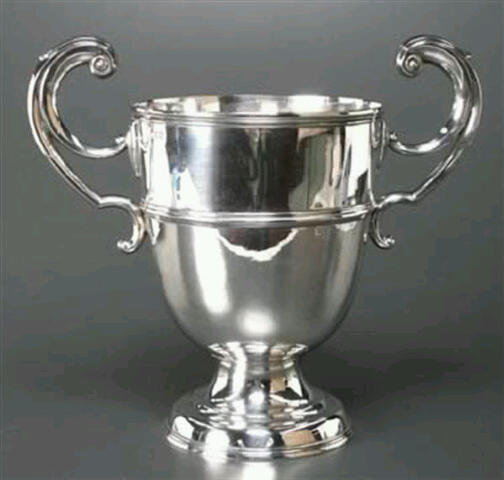
Purchased at auction Weds 9 June by Bill Coales, to be engraved and then fought over in an annual memorial match between the All Stars and Halverstown CC. Not to be confused with The Alan Ruddock Trophy (see All Stars news). This came from an inspired idea by Jesh Rajasingham and was quickly approved by all others, with much research put in by Alex Beard and Bill Coales.
Flying the Flag
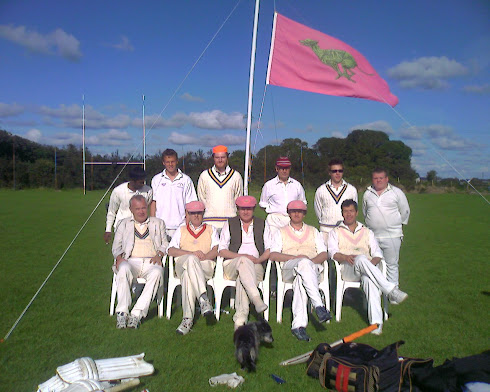
Iinauguration of the White City flag, v Kerry CCC, August 2007: b row - J Rajasingham, W Oborne, H Snook, M Shenfield, G Dudley, Local Ringer; f row - T Razzall, W Coales, P Oborne, J Oborne, P Yule.
One from the photo archives
The Irish Tour line-up 1988 - (back) Shwab C, Beard T, Oborne P, Ruddock A, Shwab P, Coyle J (front) McCrystal D, Beard A, Stevenson P, Kiely J, Pressley C
More from the archives
Beautiful Mount Juliet
Cricket Tea

Titch: "This rhubarb tastes funny..."
Tim Kavanagh and Oborne P
Stevenson and Beard A in the tour bus
Rathmore

Ruddock (centre) with Stevenson and Beard, Rathmore 2008
Rathmore

Ruddock (left) with Coales, McCrystal, Stevenson and Yule, Rathmore 2008
Drenagh
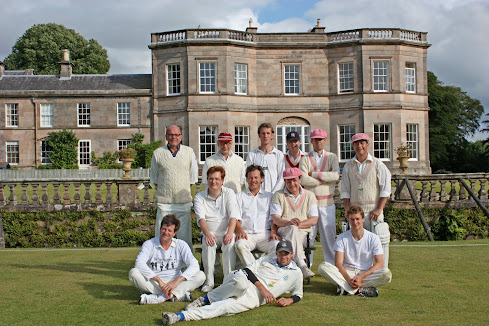
Drenagh, Co Derry, 2009. Back row - Roger Alton, Martin Shenfield, James Jones, Bill Coales, Joe Saumarez Smith, Paul Yule; middle row - Danny Alexander, Conolly McCausland, Peter Oborne (capt); front row - William Sitwell, Will Middleton, Alex Kelly



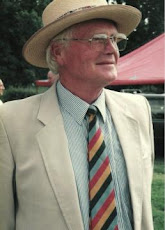


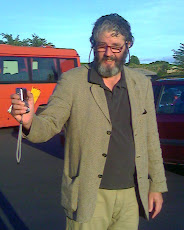


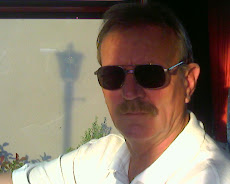
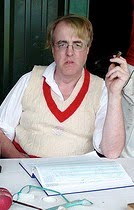














No comments:
Post a Comment